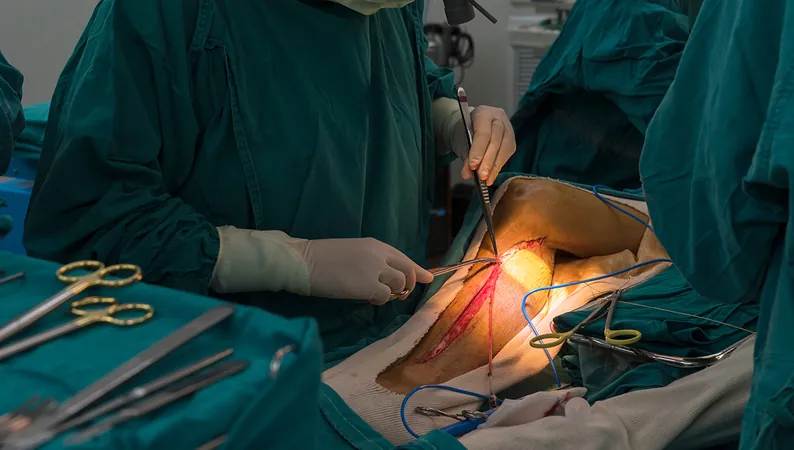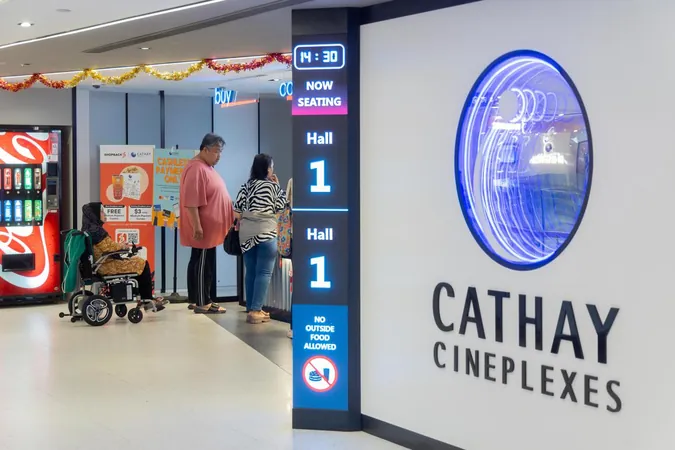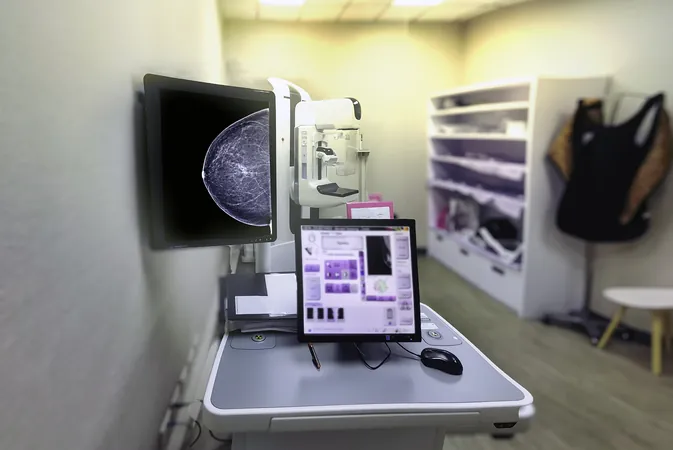
Revolutionary Study Reveals Evolocumab Fails to Tackle SVG Failure in Heart Surgery!
2025-09-04
Author: Wei
Is Evolocumab the Answer to SVG Failure? Think Again!
In a groundbreaking revelation from Madrid, a recent study presented at the European Society of Cardiology Congress 2025 and published in The Lancet has put a disappointing spotlight on evolocumab (Repatha; Amgen). It turns out that adding this PCSK9 inhibitor to statin therapy does NOT lower the risk of saphenous vein graft (SVG) failure for patients undergoing coronary artery bypass surgery. This major finding highlights an ongoing challenge in cardiac surgery that still lacks effective solutions.
A Persistent Problem: The Stubborn SVG Failure Rate
Lead investigator Dr. Subodh Verma from St. Michael's Hospital in Toronto emphasized the urgency of addressing this issue. He noted that a staggering 90% of coronary bypass procedures utilize saphenous veins, which are plagued by failure rates of around 20-50% within just a few years post-surgery. When these grafts fail, the outcomes for patients can be dire.
What Causes SVG Failure? The Mystery Continues!
SVG failure is multifaceted, influenced by surgical techniques and the physiological dynamics of blood flow. Factors such as poor target vessel quality and adverse structural changes in vein grafts from exposure to high arterial pressures contribute to this predicament. Although LDL cholesterol levels have been implicated in SVG occlusion, the results of this study suggest that lowering cholesterol with additional medications like evolocumab may not be the solution we hoped for.
Trial Breakdown: The Cold Hard Facts
Conducted across 23 centers in Canada, the U.S., Australia, and Hungary, the NEWTON-CABG CardioLink-5 trial enlisted 782 patients averaging 66 years old, who were randomly assigned to receive either evolocumab or a placebo in addition to standard statin treatment. Despite a dramatic 52% reduction in LDL cholesterol levels among those on evolocumab, the vein graft disease occurrence was nearly identical between the two groups, casting doubt on the efficacy of further cholesterol reduction.
What’s Next? Revisiting Arterial Grafting
Interestingly, there is evidence suggesting that using arterial grafts, especially the internal thoracic and radial arteries, can lead to better long-term outcomes compared to saphenous veins. Current revascularization guidelines highlight the benefits of these alternatives. However, Dr. Verma cautioned against a complete shift to arterial grafting, citing specific limitations and the continued reliance on vein grafts in many cases.
A Glimmer of Hope for Heart Patients?
Despite the disappointing results regarding evolocumab, the study is seen as significant in addressing this critical clinical question. Renowned medical expert Dr. François Mach emphasized that the LDL reduction achieved with evolocumab aligns closely with past successful trials, raising hopes for future investigations to uncover better solutions for SVG failure.
The Takeaway: LDL Control Remains Crucial!
While the NEWTON-CABG study underscores the challenges of SVG failure and the limitations of LDL-lowering drugs like evolocumab, it reaffirms the importance of cholesterol management as a key component of secondary prevention for heart patients. As researchers continue to search for viable answers, one thing is clear: the fight against SVG failure is far from over!



 Brasil (PT)
Brasil (PT)
 Canada (EN)
Canada (EN)
 Chile (ES)
Chile (ES)
 Česko (CS)
Česko (CS)
 대한민국 (KO)
대한민국 (KO)
 España (ES)
España (ES)
 France (FR)
France (FR)
 Hong Kong (EN)
Hong Kong (EN)
 Italia (IT)
Italia (IT)
 日本 (JA)
日本 (JA)
 Magyarország (HU)
Magyarország (HU)
 Norge (NO)
Norge (NO)
 Polska (PL)
Polska (PL)
 Schweiz (DE)
Schweiz (DE)
 Singapore (EN)
Singapore (EN)
 Sverige (SV)
Sverige (SV)
 Suomi (FI)
Suomi (FI)
 Türkiye (TR)
Türkiye (TR)
 الإمارات العربية المتحدة (AR)
الإمارات العربية المتحدة (AR)